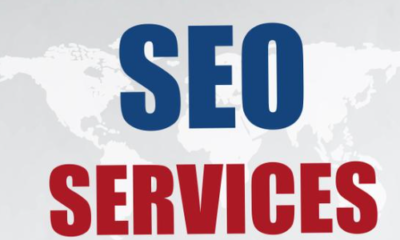Digital Marketing
Integrate SEO to Boost Your Business Online

Search Engine Optimization (SEO) is a process of optimizing web pages and their content to be more easily discoverable by users searching for terms relevant to your website. SEO involves techniques such as keyword research, link building, and optimizing content for search engines.
SEO is an important part of any digital marketing strategy as it helps ensure that your website is seen by the right people, at the right time. With proper SEO practices, you can increase your visibility in search engine results pages (SERPs), drive more traffic to your site, and ultimately improve conversions and sales.
Benefits of SEO
The benefits of SEO are numerous and can help any business, regardless of size or industry, gain an advantage over its competitors in the organic search engine rankings. Here is an overview of some key advantages that come with implementing an effective SEO strategy:
- Increased Visibility: One major benefit of SEO is increased visibility in search engine results pages (SERPs). By optimizing your site’s content for relevant keywords and phrases, you can ensure that your website shows up when people are searching for products or services related to yours. This increased visibility can result in more clicks on your website from potential customers who would have otherwise never seen it.
- Cost-Effective: Another great benefit of SEO is its cost-effectiveness compared to other forms of digital marketing such as PPC advertising or social media campaigns. With SEO, you only pay for actual clicks on your website from customers who found you through organic searches – no paying for impressions or banner ad placements like with other forms of digital advertising.
Types of SEO Strategies
Search Engine Optimization (SEO) is an essential part of a successful online marketing plan. It helps your website or blog rank higher in search engine results pages, thereby increasing the number of visitors to your site and helping you generate more leads. However, not all SEO strategies are created equal, and understanding the different types can help you decide which approach is best for your business.
Content-Based Strategies
Content-based SEO strategies focus on optimizing web pages with relevant keywords and content that target specific topics related to the page’s purpose. This includes optimizing titles, headlines, meta tags, description tags, URLs, body copy, and other content elements to ensure they contain relevant information that will make them more likely to show up in search engine results for related queries. Additionally, content-based SEO also involves making sure each page has enough unique quality content that it will stand out amongst competitors when users make searches related to the topic at hand.
Link Building Strategies
Link building is another important aspect of SEO as it helps increase a website’s authority by pointing backlinks from external websites toward it. This can be done by creating informative articles or blogs that link back to the website or through guest post submissions on other sites with high domain authority. Additionally, you can use the infographic link building technique, i.e., creating high-quality images and infographics in exchange for website backlinks.
On-Page Optimization Techniques
In this day and age, it is essential for businesses to have a strong online presence if they want to remain competitive. One of the most important aspects of achieving this goal is on-page optimization. On-page optimization refers to the practice of optimizing web pages and content in order to rank higher in search engine results pages (SERPs).
When it comes to on-page optimization, there are several techniques that can be used in order to achieve better rankings. These techniques include keyword research, content optimization, meta-tag optimization, image optimization, internal linking structure, URL structure, and more.
Keyword research is the first step when it comes to on-page optimization as it helps identify which keywords should be targeted for each web page or piece of content. This involves analyzing relevant topics related to a website’s niche as well as researching what keywords competitors are targeting in order to gain an edge over them. Once relevant keywords have been identified they should be strategically placed throughout the content so that search engines can better understand what the page is all about.
Content Optimization involves making any necessary adjustments or updates that will make all web pages easier for users and search engines alike to read through and understand their purpose.
Off-Page Optimization Techniques
Off-page optimization is an important part of search engine optimization. It refers to activities that are done outside a website in order to improve its ranking on search engines. Off-page optimization techniques can help a website rank higher and gain more visibility in organic search results.
Link Building: Link building is one of the most important off-page SEO techniques. It involves creating links from other websites back to your own, which helps boost your website’s authority and rankings on search engines like Google. To do this, you need to create content such as blog posts, press releases, infographics, or videos and then link them back to your website with relevant anchor text.
Social Media Engagement: Social media engagement is also an essential part of off-page SEO strategies. Utilizing social media platforms such as Facebook and Twitter can help spread the word about your content and increase brand awareness among potential customers or clients in the process. Additionally, it gives you the opportunity for people to share your content with others who may be interested in what you have to offer – leading potentially to more traffic back to your website or blog posts!
Tools for Measuring and Monitoring SEO Performance
Search engine optimization (SEO) is an essential part of any successful digital marketing strategy. It allows you to reach potential customers, improve your online visibility, and drive more traffic to your website. But in order to get the most out of SEO, you need to be able to measure and monitor its performance. Fortunately, there are numerous tools available that make this task much easier.
One of the most popular tools for measuring SEO performance is Google Analytics. This powerful tool provides detailed statistics on website traffic and user behavior, allowing you to track progress over time and identify areas for improvement. You can also use it to monitor keyword rankings on search engines like Google and Bing, making it easy to see which keywords are performing well and which ones need more work.
Conclusion
In conclusion, SEO is a powerful tool for increasing website visibility and helping businesses reach new customers. It is an ongoing process that requires regular maintenance and the implementation of best practices in order to ensure optimal performance. With the right strategy, SEO can help you generate more leads, increase organic traffic, and ultimately improve your bottom line.
-
Blog1 year ago
MyCSULB: Login to CSULB Student and Employee Portal – MyCSULB 2023
-
Android App3 years ago
Cqatest App What is It
-
Android1 year ago
What Is content://com.android.browser.home/ All About in 2023? Set Up content com android browser home
-
Software2 years ago
A Guide For Better Cybersecurity & Data Protection For Your Devices
-
Latest News2 years ago
Soap2day Similar Sites And Alternatives To Watch Free Movies
-
Android2 years ago
What is OMACP And How To Remove It? Easy Guide OMACP 2022
-
Android3 years ago
What is org.codeaurora.snapcam?
-
Business2 years ago
Know Your Business (KYB) Process – Critical Component For Partnerships


































